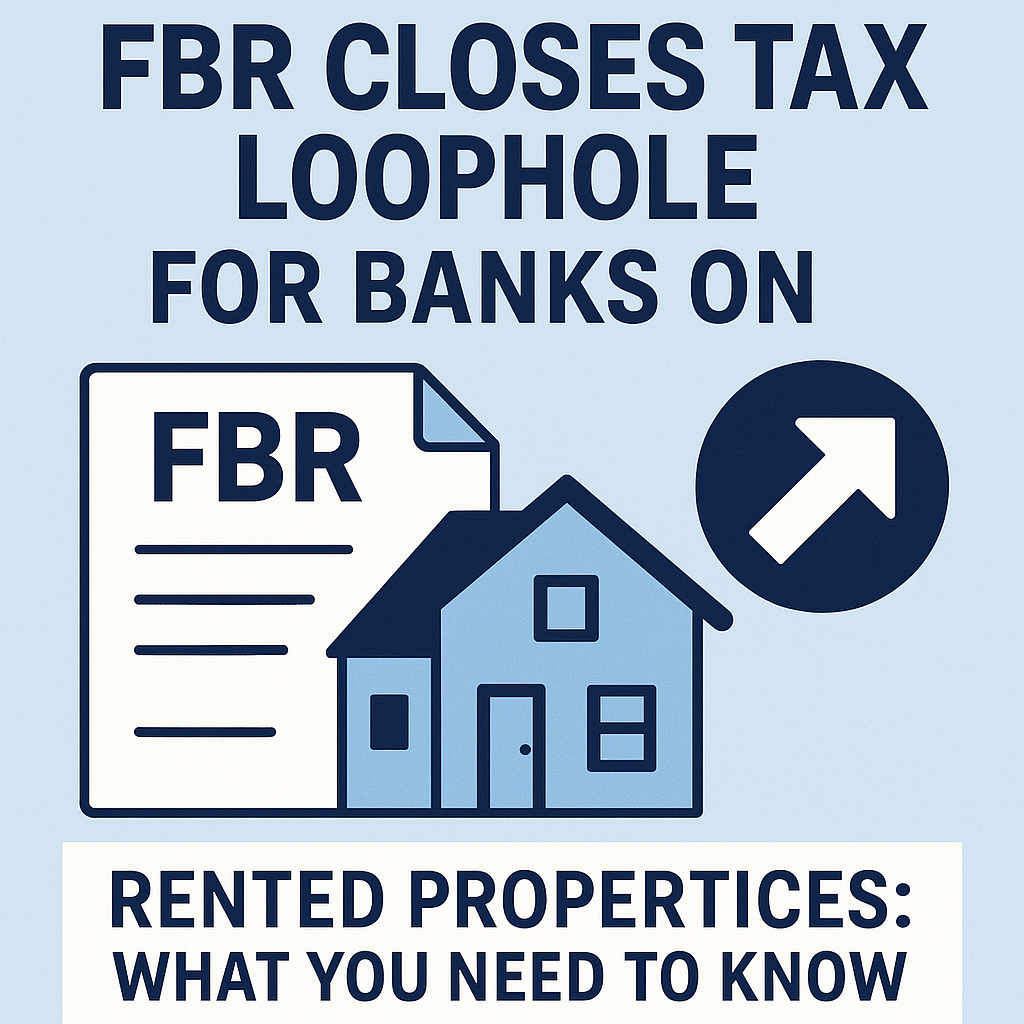
On July 1, 2025, the Federal Board of Revenue (FBR) officially eliminated a long-standing tax loophole used by banks for leased or rented property income. This change, enacted through the Finance Bill 2025–26, marks a significant step in Pakistan’s tax modernization and transparency goals. This move aligns with global standards such as those outlined in the OECD Transfer Pricing Guidelines.
Previously, banks leasing or renting commercial/residential spaces could claim excessive deductions—including inflated rent, repair costs, and interest—thus minimizing taxable rental income. Under the new Finance Bill 2025–26 (full document available on the Ministry of Finance’s official website), these expenses are now strictly reviewed under arm’s length pricing rules, especially for transactions involving related parties.
For years, banks exploited ambiguities to claim unwarranted tax breaks:
Phase | Action |
|---|---|
1. Scrutiny of Related-Party Lease Agreements | FBR now investigates lease pricing and structures |
2. Market Benchmarking | All rental rates must be supported by independent valuations |
3. Document Checks | Valid invoices, lease agreements, third-party assessments are now mandatory |
4. Adjustments & Penalties | Non-compliant deductions are reversed; interest and fines may apply |
5. Audit Powers Expanded | FBR auditors are empowered to access property files and on-site inspections without prior notice (a power described in the Business Recorder) |
According to the World Bank’s Pakistan Economic Update 2025, tightening compliance measures like this have helped reduce Pakistan’s fiscal deficit by 1.2%.
This change is part of a wider tax reform strategy:
Q1: Which banks are impacted by this reform?
All scheduled and Islamic banks leasing or renting from related parties.
Q2: What constitutes a “related party”?
Any entity with ownership or management overlap, including subsidiaries and directors’ private companies.
Q3: Are market valuations now mandatory?
Yes. Rental agreements must be backed by a third-party assessment or comparable lease analysis.
Q4: Can this rule be applied retroactively?
Potentially yes—especially for open audits covering current or prior fiscal years under dispute.
The FBR's crackdown on tax evasion via leased properties is a turning point in its tax enforcement strategy. Financial institutions must proactively adapt to these stricter requirements to avoid scrutiny, fines, and reputational damage. With transparency now a regulatory necessity, early compliance is the only path forward.
No comments yet. Be the first to share your thoughts!
Have questions about our services or need personalized advice? Our team is ready to assist you.